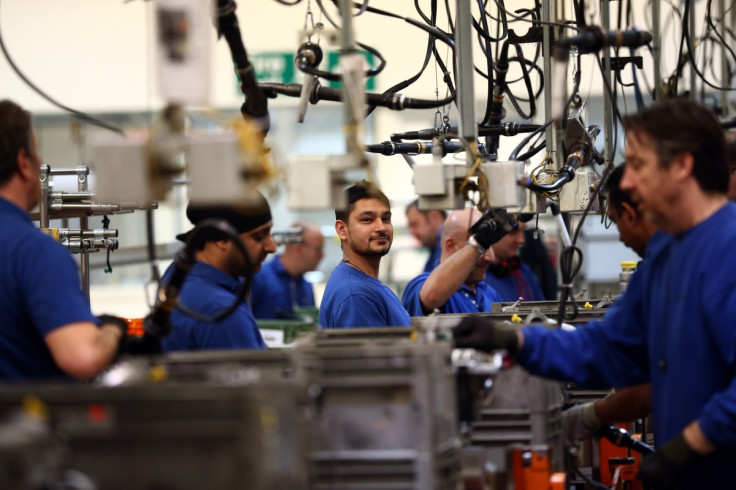UK manufacturing sector suffers unexpected slowdown in March
Manufacturing output grows 2.3% in March but falls short of 3% forecast.

Britain's industrial sector slowed down for the third consecutive month, after output suffered an unexpected slowdown in March, official data released on Thursday (11 May) showed.
According to the Office for National Statistics (ONS), manufacturing production fell 0.6% in March from the month before, compared with a 0.1% decline recorded in the previous month and analysts' expectations for a 0.2% drop.
On a year-on-year basis, production rose 2.3 %, falling short of forecast for a 3% gain and from the previous month's revised 3% reading.
The ONS added basic metals, and metal products provided the largest downward pressure on manufacturing in March, while warmer-than-average temperatures led to a decrease in energy supply, which fell 4.2% from the previous month.
Meanwhile, overall industrial production – a broader gauge of the industry – fell 0.5% in March, compared with analysts' expectations for output to drop 0.4%. February's 0.7% decline was revised slightly downward, to a 0.8% drop.
On an annual basis, meanwhile, industrial production rose 1.4% from the corresponding period in the previous year, compared with a revised 2.5% increase in the previous month and forecast for a 1.9% gain.
"The industrial production number released today is rotten and it clearly communicates how investors have scaled back from committing any major projects," said Naeem Aslam, chief market analyst at Think Markets UK.
"Both the construction output and industrial production numbers deliver one simple key message for Theresa May, it is not the time to go out and talk about hard Brexit.
"In other words, the effect of Brexit have started to surface and today's economic number is a clear evidence of this."
Howard Archer, chief UK and European economist at IHS Markit, described the data as "ropey", adding the latest figures pointed to a poor end to a disappointing first quarter for the UK economy.
"The poor data dilute any hopes that markedly slower GDP growth of 0.3% quarter-on-quarter in the first quarter could be revised up," he explained.
"Indeed, the actual industrial production data was weaker than estimated in the preliminary first quarter GDP estimate while the trade deficit unexpectedly widened."
A report released, in week beginning 11 May, by Markit economics showed that the manufacturing sector grew at the fastest pace in three years in April. The latest manufacturing purchasing managers' index (PMI) surged from 54.2 in March to 57.3 last month, compared with analysts' expectations for a 54 reading and marking the ninth consecutive month of expansion.
© Copyright IBTimes 2025. All rights reserved.






















